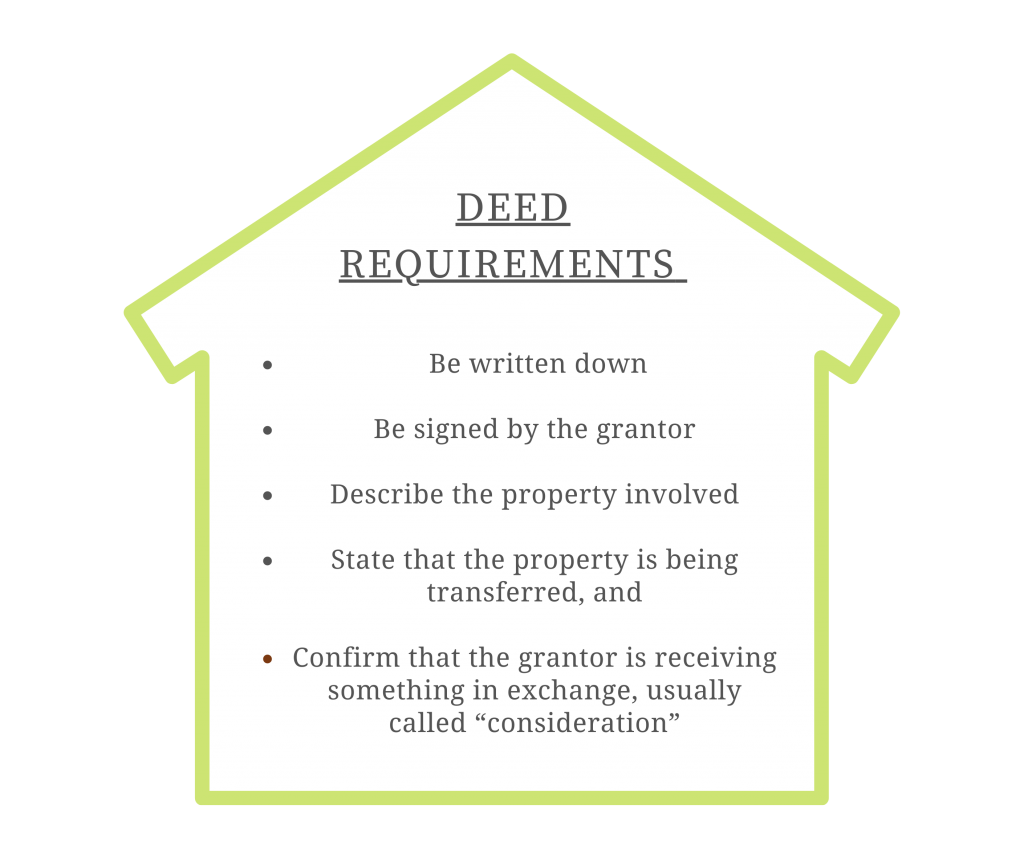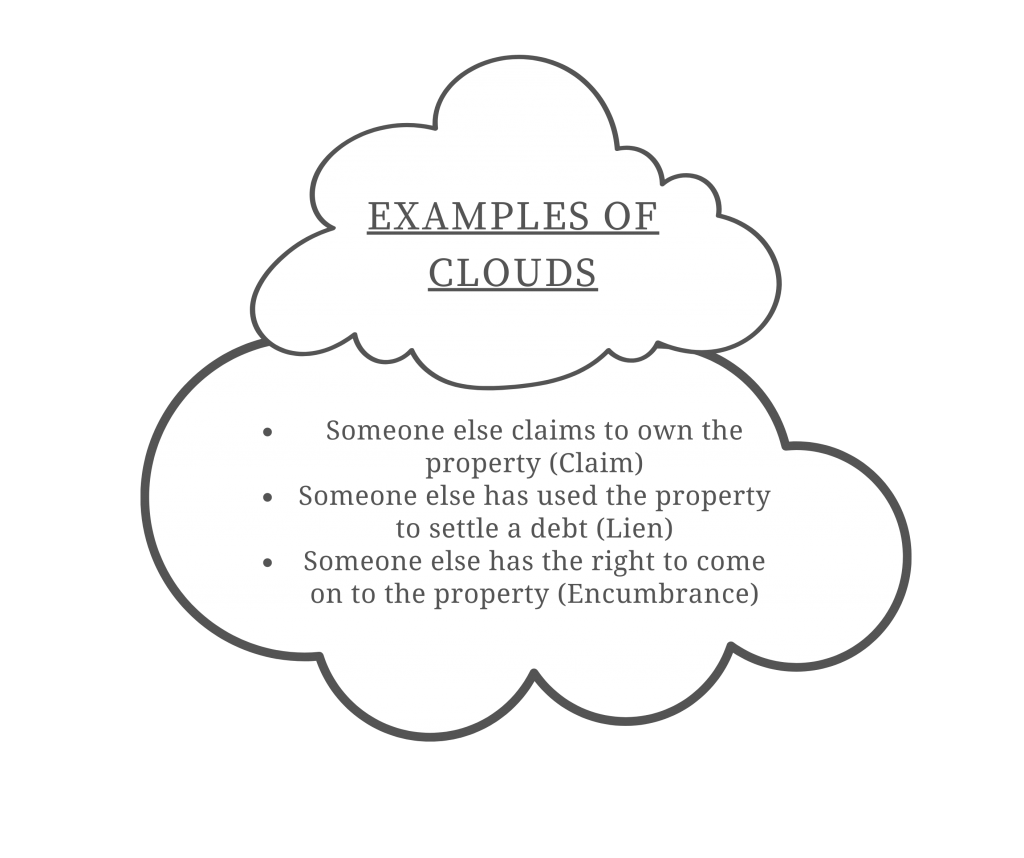If you’ve ever thought about buying or selling a piece of land, you’ve likely heard of the concept of recording a deed.
You may know that it’s an important part of securing your rights to what is likely the most valuable thing you own. But it’s also a process filled with complicated terms and rules that vary by state. And getting it wrong could have serious consequences, including exposing you to litigation from other people who claim to own the land.
In this post, we’ll take a look at what deeds are for, the different types that are available, the procedures involved. This information is especially important if you plan to buy or sell a home without hiring a real estate agent.
Table of Contents
What is a Deed?
A deed is a legal document used to transfer rightful ownership of a piece of property. The deed signifies that the holder has “title” to the land.1 Under old traditions embodied in British Common Law, which form the basis of modern U.S. property ownership, land was transferred from one party to another through a process called “livery of seisin,” which involved the former owner handing a fistful of dirt from the property to the new owner.2 The deed system got rid of the need to get one’s hands dirty, but the idea behind a deed remains fundamentally the same: a physical object meant to stand in for an intangible idea.
States have different requirements for what a deed takes to be valid, but in general, deeds must be written down and signed by the party transferring ownership, who is traditionally called the “grantor.” This document should be witnessed, notarized, or both. (Click here to find the signing requirements for deeds.) Because a deed functions like a contract, the grantor must be competent at the time the deed is signed. The deed should describe the property being conveyed; for properties in urban areas, an address can work, while in rural areas, geographical features can be used. Finally, it has to contain language indicating that the grantor is passing on ownership, and indicate that the grantor is receiving something in return, a concept called “consideration.”3

Why Do Deeds Need to be Recorded?
Recording deeds exists because land is different than other kinds of assets. When it comes to a stereo, a lawnmower, a baseball bat, or pretty much any kind of personal property, whoever possesses the item is typically the owner, and sorting out disputes over rights to the property is often easy. But because you can’t pick up land and take it with you, and because parts of land — particularly rural real estate — may be unoccupied for long stretches of time, ownership of land is much more likely to be disputed. Indeed, the risk is sufficiently serious that most mortgage lenders require that buyers purchase title insurance, which protects buyers from other people who may claim to own a property.4
Recording deeds is an attempt to address this problem. At the most basic level, recording a deed involves filing the deed with a government body, so that it may be viewed by the public.5 Making the deed public allows potential buyers to learn about the property’s history, and allows sellers to demonstrate that they have the right to sell what they are claiming.
Defective Title
A deed is said to reveal that someone has “title” to the property, meaning that he or she is the rightful owner. But not sometimes the title that a person has can be problematic in some way, or “defective.” You may also hear the term “cloud on title,” which is a claim or encumbrance on a piece of property.6 This can take a number of forms. Sometimes, another party will purport to own outright the property you have purchased. In other instances, the property may have a lien against it, which means that the property may be relied on to settle a debt. The property could also be subject to an easement, which means that someone else has a right to come and go across a portion of the land.7 All of these things make a property less valuable than it would be if they didn’t exist, and none of them would necessarily be apparent from a physical inspection of the land. Alerting potential buyers to issues like these is the main reason for recording deeds.

Types of deeds
If the grantor has a defective title of some kind, then the grantor can’t provide perfect title to the buyer. And if the grantor is uncertain whether there is a claim or encumbrance on the land, that means that will be reflected in the title passed to the buyer as well. As a result, not all deeds are created equal. States now recognize several different kinds of deeds to reflect this, though they may use slightly different names to describe the types of deeds below.8
Quit Claim Deed
This is the deed providing the weakest protection for the buyer. It essentially says that the seller, and the seller only, “quits” having any claim to the property. It does not guarantee that the seller owns the property, or that the property is free of claims or encumbrances.
General Warranty Deed
While a quit claim deed provides the least protection, a general warranty deed provides the most. In a general warranty deed, the seller is that he or she has good title to pass on and that the property is free of rightful claims or encumbrances. And, crucially, the seller is promising — or “warranting” — to defend the buyer if someone makes a claim to the contrary. This could mean paying for an attorney to fight the case out in court, or paying for the value of what the buyer was promised.9
Special/Limited Warranty Deed
A special warranty deed, also called a “limited warranty deed,” makes similar promises to a general warranty deed regarding claims and encumbrances. But they only apply during the period that the seller owned the property, while a general warranty deed goes all the way back to the beginning of the title. In other words, someone with a claim from a long time ago could still emerge, and the holder of a special warranty deed wouldn’t be protected.10
Other Kinds of Deeds
The diversity of state rules on deeds mean that there are other kinds of deeds available in some places or some circumstances. For example, some states recognize a “survivorship” deed used to transfer ownership to another party on the death of the grantor.11 If for some reason you are unable to offer a warranty deed, or are looking to transfer the property for a limited purpose, it’s best to consult your state’s laws to see if there is a deed to suit your purpose.
Deed Recording Procedures
If you are selling property with the help of a real estate agent, the real estate agent will generally take care of the recording obligations. But if you act on your own, it’s important to take care of it on your own.
Deeds are registered on a local basis. The proper place to register will typically be the office of the recorder for the county where the property is located. In some states, however, the county clerk handles this responsibility. For a list of where deeds should be recorded in every state, click here. The county where you file will usually offer a property search function that allows you to look up past ownership records.
Finally, it’s important to keep in mind that there may be recording obligations even if the owner of the home doesn’t change. For example, when the lender who provided the buyer with funds to buy a home sells the mortgage to another party, this is known as a mortgage assignment, and this information must also be recorded.
Sources
- https://www.investopedia.com/terms/d/deed.asp
- https://www.law.cornell.edu/wex/seisin
- https://www.dre.ca.gov/files/pdf/refbook/ref07.pdf
- https://www.consumerfinance.gov/ask-cfpb/what-is-owners-title-insurance-en-164/
- https://www.investopedia.com/terms/r/register-of-deeds.asp
- https://www.law.cornell.edu/wex/cloud_on_title
- https://www.thebalancesmb.com/easements-liens-and-encumbrances-in-real-estate-2866919
- https://www.thebalancesmb.com/real-estate-title-deeds-types-2866991
- https://finneylawfirm.com/real-estate-101-breach-of-general-warranty-covenants-can-be-costly-mistake/
- https://umaine.edu/svt/wp-content/uploads/sites/105/2015/05/DeedsTypes.pdf
- https://www.lancaster.ne.gov/1031/Deed-Forms
